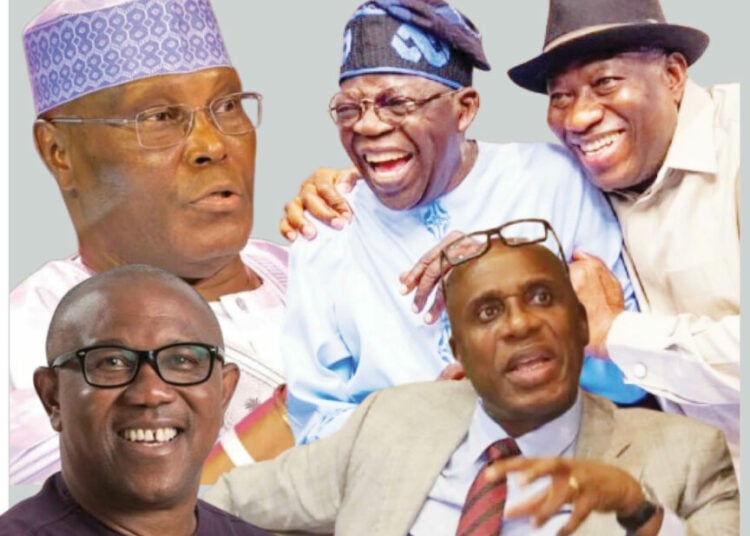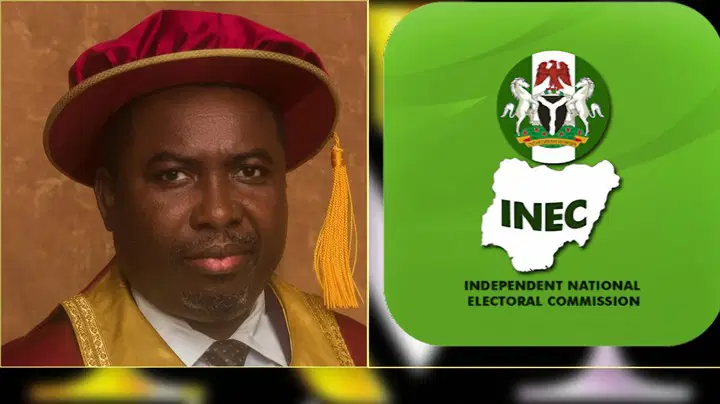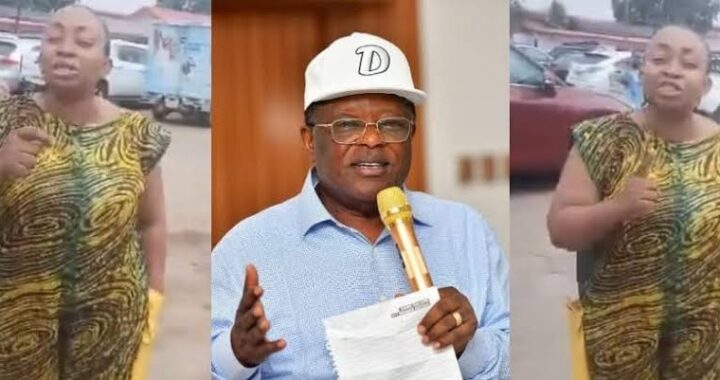There is rising concern within opposition ranks about a likely repeat of the 2023 scenario, in which its split led to a narrow but strategic victory for the ruling All Progressives Congress (APC) and its candidate, President Bola Tinubu.
Feelers from opposition camps indicate that members are worried it will be difficult to unseat the ruling APC in 2027 unless key figures forgo their egos and personal ambitions.
Sources who spoke with LEADERSHIP Sunday on condition of anonymity said the concern that an unhealthy tussle for the party’s presidential ticket might jeopardise a united opposition front has been rife within their circles.
They believe that opposition leaders refusing to line up behind a single candidate or platform could potentially hand Tinubu an easier win compared to the 2023 election.
This scenario is already compounded by fragmented opposition political platforms, including the PDP, ADC, LP, SDP, and ADA, some of which are engulfed in internal crises.
In the 2023 election, Tinubu, as the APC candidate, won the presidential election with 8,794,726 votes.
He was followed by Atiku, who got 6,984,520 votes, and Obi, who scored 6,101,533 votes. Kwankwaso of the NNPP came a distant fourth with 1,496,687 votes.
However, Tinubu, Atiku, and Obi each won 12 states, while Kwankwaso won only Kano State.
Ahead of the 2027 election, President Tinubu is already in pole position to be the APC candidate, following endorsements by the organs and leaders of the APC. The opposition, on the other hand, has yet to forge a united front amid an array of likely contenders.
So far, those who have shown interest from opposition ranks are former vice president Atiku Abubakar, former Labour Party presidential candidate Peter Obi, former minister of Transportation Rotimi Amaechi, and former presidential candidate and business mogul Dr Olawepo-Hashim.
Although he has yet to formally comment on his next move, indications are strong that former President
Goodluck Jonathan will contest the 2027 election.
In the build-up to the 2015 election, the merger of now-defunct parties, namely Action Congress of Nigeria (CAN), Congress for Progressive Change (CPC), All Nigeria Peoples Party (ANPP) and a fraction of All Progressive Grand Alliance (APGA) energised the hitherto fragmented opposition to defeat the then-ruling PDP
PDP Still Lost In The Woods Ahead Of Convention
The former ruling party has been bedevilled by a series of crises since losing the 2015 election, which escalated after the 2023 election, leading to mass defections of members, including two sitting governors and several serving federal and state lawmakers.
Although the party is preparing for a national convention in November, internal rifts culminating in a split within the National Working Committee (NWC) remain a major concern.
What’s more, the clamour by party chieftains such as former Minister of Information, Prof Jerry Gana, for Jonathan and Obi to return and likely take the party ticket is facing resistance.
PDP presidential hopeful Olawepo-Hashim has insisted that the party should produce its best candidate and not be held back by zoning.
Olawepo-Hashim maintained, “I am not averse to Jonathan and Obi returning to the PDP. However, the party should not be railroaded into handing the ticket to a ‘selected candidate’ without transparent and fair primaries open to all members.”
Also, the PDP bloc loyal to the Minister of the Federal Capital Territory (FCT), Nyesom Wike, has opposed the return of Jonathan and Obi to take the party ticket. Despite remaining in the PDP, the camp has since pledged to support Tinubu’s second-term ambition in 2027.
Ego Battle In ADC
The battle for who gets the coalition opposition party’s presidential ticket is a major concern for its stakeholders.
This much was hinted by an ADC chieftain and former national vice chairman of the APC, Lukeman Salihu, who last week noted that the battle for control of the party’s structure posed a major threat to ADC’s potency.
Also, former vice president Atiku Abubakar strongly dismissed any insinuations that he would step down for any candidate ahead of 2027.
Obi has also declared that he would not be a running mate to any candidate.
However, at their meeting last week, the top contenders agreed to support whoever emerges as the party’s candidate.
Labour Party, NNPP in Disarray
Like the PDP, the Labour Party has been bogged down by a leadership crisis since the 2023 election. At the height of the legal battle, four blocs laid claim to the party’s leadership.
The main contest is now between the Julius Abure camp and the camp led by former minister of finance, Esther Nenadi Usman, who enjoys the backing of Obi and the Abia State governor, Alex Otti—the only LP governor.
A recent attempt by Obi’s 2023 running mate, Datti Baba-Ahmed, to mend the cracks within the party has yet to produce the desired results.
The situation in the Labour Party is similar to that of the New Nigerian Peoples Party (NNPP), which has been battling a post-2023 leadership crisis. Two camps lay claim to the party, even though it still controls one state (Kano), just like the Labour Party (Abia).
SDP
The Social Democratic Party (SDP), projected as the face of the opposition, has also been engulfed in a leadership crisis, leading to controversies over the suspension of its national chairman and other party leaders.
ADA
The All Democratic Alliance (ADA), recently registered by the Independent National Electoral Commission (INEC), was meant to be a backup for coalition leaders should their use of the ADC as a platform to challenge the APC fail.
Although opposition leaders recently pledged to remain in the ADC, there are concerns that ADA might still be used as an option for those who feel aggrieved within the opposition.
2027 Will Be a Three-Horse Race — Okorie
The founder of the All Progressive Grand Alliance (APGA), Chief Chekwas Okorie, has stated that the 2027 presidential election will be a three-horse race between President Bola Tinubu, former Labour Party candidate Peter Obi, and former PDP candidate Atiku Abubakar.
Okorie said the race will not be a walkover for President Tinubu, considering the hardships people are experiencing in the country.
He expressed optimism that both Obi and Atiku will contest the presidency in 2027, adding, “Though Obi has not picked the membership card of the ADC, he may soon unveil the platform he will use to actualise his ambition.”
Okorie further stated that Atiku may get the ticket of the ADC, given his closeness to the alliance.
According to him, “If there is a free and fair election, the race will not be easy for Tinubu as it will be between three gladiators.”
Fragmented Opposition, Internal Struggles Threaten PDP, ADC — Hakeem Baba-Ahmed
Former Special Adviser on political matters to President Bola Ahmed Tinubu, Dr Hakeem Baba-Ahmed, told LEADERSHIP Sunday that growing fragmentation within Nigeria’s major opposition parties, shifting alliances, and strategic miscalculations may undermine their ability to mount a credible challenge to the ruling APC.
He said the PDP is facing an existential threat as it grapples with internal subversion, unresolved power struggles, and creeping regionalisation of its influence.
The spokesperson of the Northern Elders Forum (NEF) posited that, from emerging political observations, the PDP is at risk of being reduced to a predominantly South East and South South party, with its influence in the North and parts of the South West increasingly eroded by internal wrangling and defections.
“The PDP is severely damaged, and its top priority at the moment appears to be survival,” a political observer noted.
“Its inability to decisively confront the influence of Nyesom Wike has left many of its heavyweights stranded. Delays in making key decisions over their political future could cost the party dearly and further weaken its national spread.”
In contrast, he said ADC, which has positioned itself as an alternative political platform, is struggling with credibility concerns and organisational limitations.
“ADC is not doing a good job selling itself as a credible alternative to the APC,” he stressed.
“There are lingering doubts over its ambitions and capacity, which will likely discourage many politicians who may have considered joining its ranks.”
The ADC’s ability to field a viable presidential flagbearer will reportedly be a decisive factor in its political fortunes. Analysts say the choice of candidate will either unite a critical mass of support or further expose the party’s structural weaknesses.
Meanwhile, within the APC, fresh internal tensions are reportedly brewing over a potential shift in political calculations that may alienate its core support base in the Muslim North.
“The APC itself may suffer internal damage,” observers warned.
“There are indications that the party might send signals of jettisoning the Muslim North, which has been its traditional political stronghold. That will raise serious concerns going into the 2027 elections.”
He said while APC governors are seen as valuable political assets, analysts say they may prove insufficient in mitigating growing hostility against the party, especially if it fails to manage its internal dynamics and national messaging.
“Looking ahead, some projections suggest that remnants of the PDP in the South may seek alignment with the APC, while others could gravitate towards the ADC. However, the success of such realignments, experts argue, will depend heavily on the leadership and candidate choices made by these parties.
“The key question for ADC remains: who carries its flag? That decision alone will determine whether the party can muster enough strength to mount a serious challenge to the APC,” he noted.
As 2027 draws nearer, Nigeria’s political landscape appears set for another round of intense realignments, with no clear opposition bloc yet emerging to pose a cohesive threat to the ruling party, Baba-Ahmed stressed.
Opposition’s Disunity Will Favour Tinubu — Shettima
Convener of the Northern Stakeholders Consultative Forum (NSCF), Alhaji Yerima Shettima, has predicted that the inability of opposition parties to form a united front ahead of the 2027 general elections will create further political instability and ultimately work to the advantage of President Bola Ahmed Tinubu.
Reacting to the back-and-forth among opposition parties, particularly with the coalition having too many would-be presidential candidates, he noted that just as in the 2023 presidential election where divisions among opposition parties cleared the path for Tinubu’s victory, the same scenario—if not worse—is likely to repeat itself.
“In fact, this time is going to be worse than what we experienced in 2023,” Shettima stated, adding, “Most of them have personal grudges. The so-called potential candidates—because I won’t even call them candidates until they secure their party tickets—are only coming together for their selfish interests.”
According to Shettima, the opposition’s internal discord and lack of a shared ideology or national vision make any meaningful alliance unlikely ahead of the 2027 general elections.
“At the end of the day, this forthcoming election might even make it easier for Tinubu to emerge as the winner,” he said.
“They are united only in their grievances, but beyond that, they are politically balkanised.”
Responding to a question on President Tinubu’s performance since assuming office, Shettima defended the administration’s record, stressing that the President has performed creditably well compared to the previous administration.
“If you ask me about the performance of the President, I will tell you yes, he has done well,” he said. “Unless you pretend to be blind, you can clearly see where we were during the Buhari era and where we are today in terms of security, economic indicators like inflation, and overall governance.”
He accused some critics of being driven by “personal interests” and “over-ambition,” which he said has blinded them to the administration’s progress.
“For us, we have seen him performing. If given the opportunity, what Buhari could not achieve in eight years, Tinubu will achieve in four,” he declared.
Opposition Must Avoid Being Built Around Personal Ambition — Ameh
Former chairman of the Inter-Party Advisory Council, Peter Ameh, has warned that the opposition coalition risks becoming a mere political stunt if built around personal ambition, narrow calculations, or power-sharing without a genuine commitment to rescuing the country from poor governance and hardship.
Ameh, national secretary of the Coalition of United Political Parties (CUPP), emphasised that voters in the 2027 elections will not be swayed by coalitions or alliances alone but by the public’s acceptance of candidates and their credentials. He said voters will rely on personal conviction, choosing leaders who truly represent the country’s interests.
“The outcome won’t simply depend on whether there’s a coalition, but on the credibility and intention behind it. Coalition politics matters, but Nigerians won’t cast their votes just because politicians came together. They’ll vote for the credibility of the candidate and the sincerity of the agenda,” Ameh said.
He added, “A coalition genuinely anchored on the aspirations of the voting population, particularly one built around strong national appeal and credibility, whose candidacy still resonates widely among Nigerians, could tilt the 2027 elections decisively in its favour. But if the coalition is built around personal ambition or just sharing positions without genuine commitment to rescuing the country from poor governance and hardship under Tinubu’s administration, it risks becoming nothing more than a political stunt.”
Ameh stressed that public acceptance hinges on trust, relatability, and a candidate’s ability to connect with the electorate.
“A candidate who resonates with the public listens, communicates effectively, and demonstrates commitment to addressing the nation’s pressing issues like economic stability, social justice, and infrastructure development,” he explained.
He also highlighted the importance of credentials, including a candidate’s track record, expertise, and moral character, as tangible measures of competence.
“Credentials serve as evidence that a candidate is equipped to handle governance complexities, prioritising substance over rhetoric,” Ameh said.
Finally, he cautioned that while coalitions can benefit the opposition, they should not be seen as the ultimate solution.
“The basis for voting has shifted towards individual accountability and conviction-driven choices. Coalitions, if not founded on clear principles, can dilute a candidate’s platform,” he concluded.
WARNING: If You Are Not 18+, Don’t Click The Link Below 👇🫣
https://pickignoranceattacks.com/m3e85u39j?key=f0014e9d9438d5115e4d66e73ca3f04b
Please don’t forget to “Allow the notification” so you will be the first to get our gist when we publish it.
Drop your comment in the section below, and don’t forget to share the post.
Never Miss A Single News Or Gist, Kindly Join Us On WhatsApp Channel:
https://whatsapp.com/channel/0029Vad8g81Eawdsio6INn3B
Telegram Channel:
https://t.me/gistsmateNG





